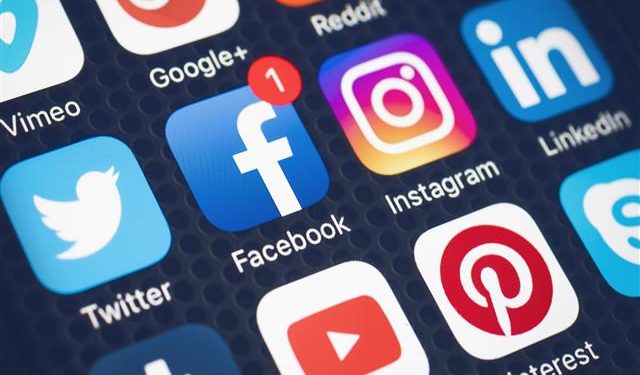New Delhi: Social media platforms such as Facebook, WhatsApp, Instagram, Twitter and TikTok may have to scramble for developing account identity-verification option to check “fake news, malicious content, misinformation, racial slurs, gender abuse that may have an impact on the individual and society as a whole”.
This may form part of the social media guidelines currently underway by the IT Ministry and could be out soon.
“The work is in progress, we have sent it to the Law ministry for vetting,” said a source.
The IT Ministry is learnt to have finalised the social media guidelines to check misinformation, malicious info and gender biased views and have sent to the Law ministry for vetting it where account holder verification could be made mandatory.
The new draft personal data protection Bill has proposed social media intermediaries to enable “voluntary verification” of user accounts. The method for this, as suggested in the bill, is that these verified users should be given demonstrable and visible mark of verification which is akin to biometric or physical identification which is publicly visible to all users.
If this is implemented, then this verification system would be different from the existing verified accounts category on platforms such as Instagram and Twitter.
The security check user account verification will be developed by the social media company.
Another major change that may come up is in the definition of the “significant data fiduciary” based on volume of personal data they possess because there is a feeling that big or small, any incorrect or fake information through even a small social media platform has the potential to multiply the fake news irrespective of the volume of personal data it holds.
Therefore, there may be another layer included for those social media companies who don’t have volumes of personal data, but they can affect the democratic nature of the country.
Under Section 26 of the 2019 Bill, certain thresholds in terms of volume of personal data processed, the sensitivity of personal data processed, risk of harm, etc are specified, upon satisfaction of which, the Data Protection Authority may notify a data fiduciary as a “significant data fiduciary” (social media companies).
This provision in the data privacy Bill is only applicable to “significant” social media platforms. The significant status of a company is determined by the Central government on the basis of number of users and the potential impact that these companies can have on Indian democracy and the country’s security and general harmony. But this may change, said sources.
A social media intermediary has been defined as a body that primarily or solely enables online interaction between two or more users and allows them to create, upload, share, disseminate, modify or access information using its services.
Earlier, there was a proposal to link social media accounts with Aadhaar to trail the real source of fake news, but the nodal agency for UIDAI shot down the proposal, saying Aadhaar is meant for distribution of government welfare benefits not catching culprits which is a policing job.
IT Minister Ravi Shankar Prasad later said there is no proposal to link social media accounts of individuals to Aadhaar.
With the rise in fake news and hate speeches online, the need for verification of social media accounts has been felt for a while. This became even more pronounced following a series of lynching incidents over religious issues. Earlier this year, Facebook reported taking down 2.19 billion fake accounts in the first quarter of 2019, a significant hike from 1.2 bn accounts in Q4 of 2018.
In addition to this, the company also removed four million hate speech posts in Q1 2019.
(IANS)






































